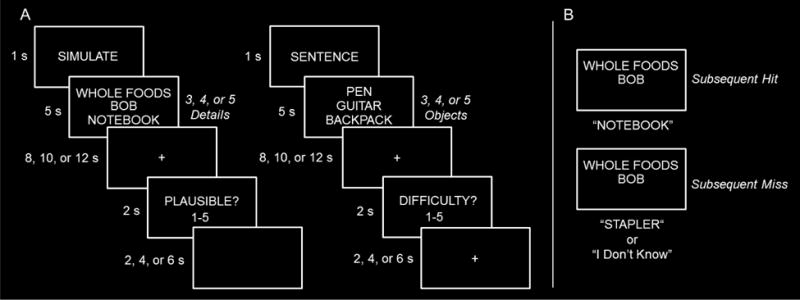Figure 1.

A. While undergoing fMRI, participants alternated between performing 2 tasks: a simulation task and a sentence task. On each trial of the simulation task, participants were cued with 3, 4, or 5 person, place and object and asked to simulate a hypothetical future episode which involved all of the cued episodic details. On each trial of the sentence task participants were cued with 3, 4, or 5 objects and asked to generate a sentence that sorted those objects by their respective size. B. In a post-scan session, participants were presented with every previous trial with a single randomly missing item (i.e., 2, 3, or 4 of the previous details and/or object words) and asked to recall the missing item. Subsequent hits were those trials where participants successfully recalled the associated item and subsequent misses were those where participants either recalled the incorrect associated item or failed to recall any information.
